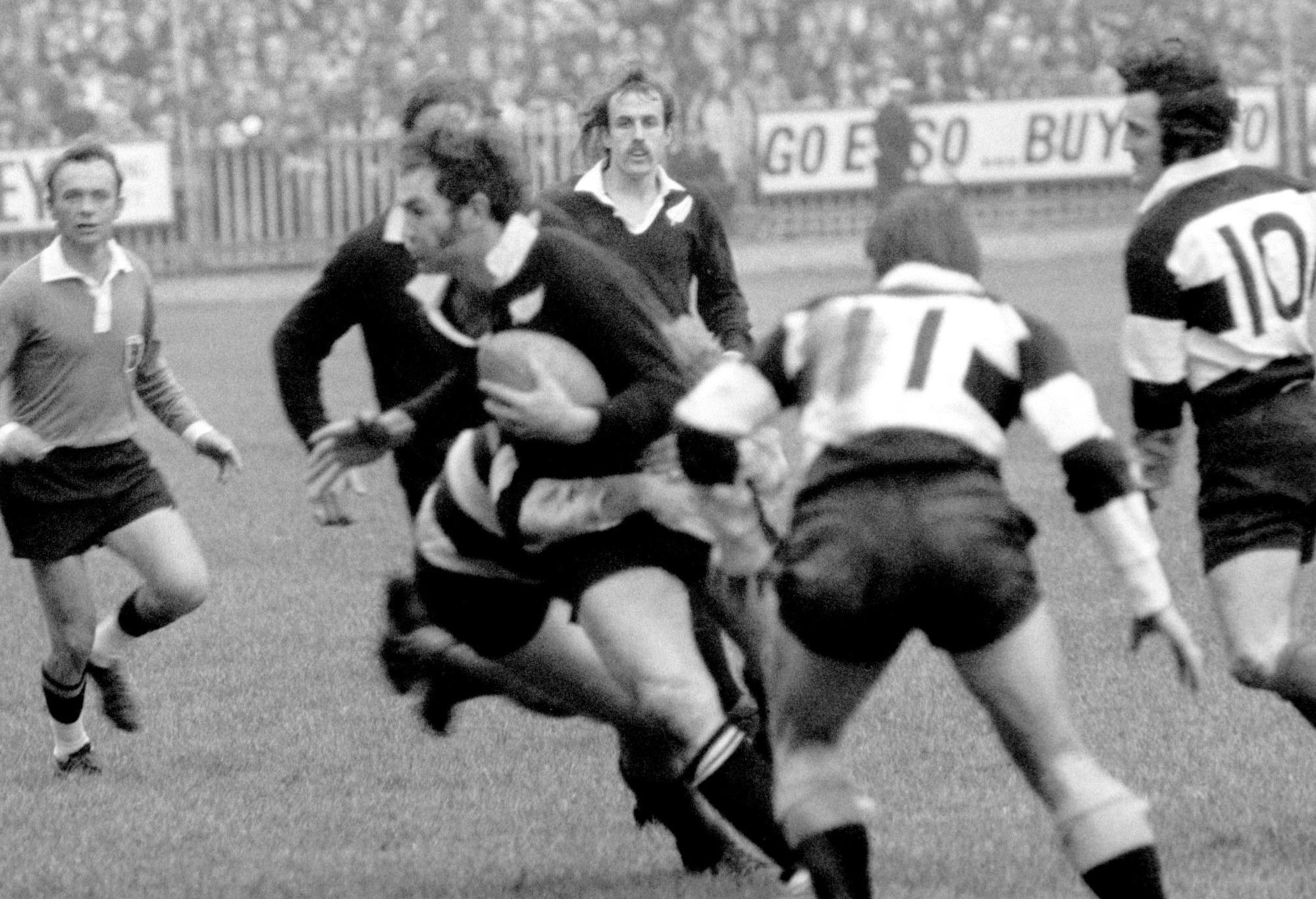There’s no way rugby’s ‘greatest ever try’ would be permitted these days

Proving today’s refereeing and officialdom is pedantic, making games unwatchable, is as simple as reflecting on the fifty years since the magnificent 1973 Barbarians versus All Blacks match.
We still discuss the game and “the try”, whereas the 2023 Rugby World Cup final between New Zealand and South Africa will be forgotten about in the future if it has not been already.
We know errors happened in the refereeing of the Barbarians match but that is not the point. Whether the referees were aware of player error and allowed the match to flow or because he was the only official on the park, mistakes were made. Point being – one game was allowed to flow.
Can you imagine the joy a TMO (Television Match Official) would have got from overseeing the ’73 game? They would have been in bureaucracy heaven. Many people enjoy the strict autocratic regulatory society we live in today and accept why the 1973 match and “the try” would not be part of our rugby union history today if it were refereed under current rules.
The players from both sides long ago wrote themselves into rugby folklore with their roles in a classic rugby match from that era. But the referee whose name would be a great question in sports trivia played a leading role as well.
His name was Georges Domercq, who passed away in 2020 aged eighty-nine. The story goes he was welcomed by supporters in France on his return home from the match, which would not happen today. Domercq’s attitude made for a flowing encounter.
Barbarians matches are known for their free flowing style, but shouldn’t a referee’s responsibility be to allow the players the freedom to express themselves in all formats of the game, whether it be a club match or a RWC final? In the 1973 match it was not all helter-skelter rugby. According to the Guardian, there were more scrums and lineouts than a 2022 Six Nations match.
As for one of the greatest tries ever scored, what would have happened to it under today’s strict rules?
From the early lineout throw by John Pullin there was some pushing and shoving in the lineout, but as they were bunched up line-ups in those days we will let that go.
All Black hooker Ron Urlich made a head high tackle on JPR Williams after JPR fielded a kick from Sid Going. No doubt Urlich would have been given a yellow card, which would have been upgraded to a red card and he would have been sent off.
In the next passage of play JPR is once again the victim of a head high tackle, this time from the great Bryan “Beegee” Williams. Sorry Beegee, but you would have had the referee ominously reaching into his pocket for a yellow card in 2024. I cannot believe I just wrote 2024, were we not supposed to be a more advanced society now?
John Dawes is meant to have presented a “great dummy” according to the legend of rugby commentators, Bill McLaren in the next play. But it is difficult to see it with the camera shooting from the ground level. We will take your word for it Bill.
The pass from flanker Tom David to number eight Derek Quinnell is often viewed by fans as being forward, but referee Domercq was close to the action and has stated it was not forward. In the footage you can see where the ref is and he is just out of line, so it could well have been forward.
Those with technical ability have analysed the pass to confirm the ref’s opinion. But the TMO would have injected themselves into our lives by recalling the pass after the try was scored and view it a hundred times before making his decision, pushing us to sit on the couch with pent up frustration!
The pass from Quinnell to Gareth Edwards appears to be more forward than the David pass, as Edwards ‘intercepts’ the pass intended for John Bevan. Once again, the TMO would have desired to justify his pay and interrupted the try celebration to bore us with incessant replays.
New Zealand rugby legend Ian Kirkpatrick is tackled as he drives forward against the Barbarians. (Photo by S&G/PA Images via Getty Images)
My point with this is not to denigrate the try, but to compare the attitudes and actions taken by the characters who featured in the 1973 classic to today’s interpretation of the rules.
“Looking back, we could not believe how many times it could have gone wrong. But there was no TMO and it was allowed to flow.” Gareth Edwards responded to the Guardian. “Allowed to flow,” that is the key. No wonder 1000 guests gathered in Newport, Wales in 2023 to celebrate the 50th anniversary of the match.
Free up rugby for its own sake, or it will slowly disappear.
The superb commentator Bill McLaren can have the last say in this, “If the greatest writer of the written word would’ve written that story no one would have believed it.”
My thanks to Roar member Sheek for providing the inspiration for this article.
